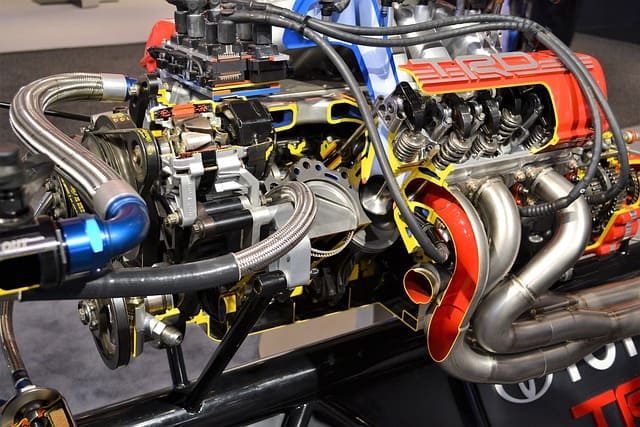Have you ever wondered how engines maintain their efficiency despite their complexity? At the core, the crankshaft’s rotation, powered by the connecting rod and pistons, orchestrates the entire operation. Key to this smooth performance is lubrication, provided by motor oil. This essential fluid lubricates not only the pistons and connecting rods but also the crankshaft, lifters, camshaft, and cam bearings. So, what is engine oil made of that enables it to perform such critical functions? Join us as we uncover the secrets behind engine oil and its vital role in engine efficiency.
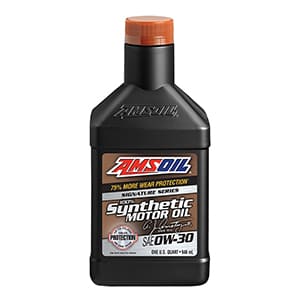
Why Lubrication Matters
Lubrication is critical because it significantly reduces friction, thereby preventing wear and tear on engine parts. Frictional losses occur in various engine components and can be quantified as follows:
Piston Rings: 38%
Valve Train: 20%
Crankshaft: 19%
Oil Pump: 12%
The presence of friction reduces the overall horsepower an engine can produce. Motor oil plays a crucial role in minimizing these losses. By forming a protective film over moving parts, oil ensures smoother operation and less energy wasted in overcoming friction. Furthermore, high-quality motor oils contain additives that enhance their lubricating properties, offering additional protection against wear.
Some might argue that not all oils are created equal, and using substandard or incorrect oil could exacerbate frictional losses rather than mitigate them. In this context, it is important to select the appropriate oil grade and formulation recommended by engine manufacturers. This ensures optimal performance and longevity of the engine.
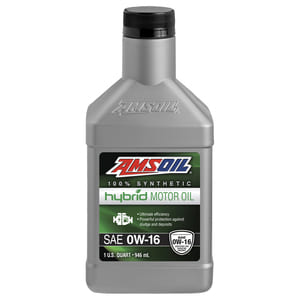
In essence, without proper lubrication, an engine’s efficiency would drastically diminish, leading to increased fuel consumption and higher emissions. Therefore, understanding the significance of motor oil and its impact on engine performance is not just crucial for maintaining reliability but also for achieving optimal engine efficiency.
Key Additives in Engine Oil
Not all engine oils are created equal. Various additives enhance oil performance in significant ways. Let’s explore these additives and their critical roles.
Anti-Foam Agents
Anti-foam agents are essential because they prevent foam formation in the oil. Foam consists of air bubbles, and air is compressible, providing no protective barrier for engine components. Without anti-foam agents, oil pressure would be compromised, leading to potential engine damage. For instance, in high-performance engines, the absence of anti-foam agents could result in inadequate lubrication, causing increased wear and tear.
Viscosity Modifiers
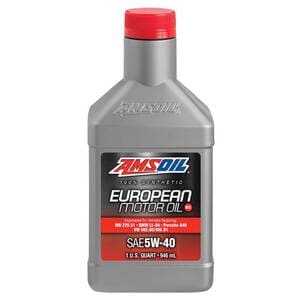
Viscosity modifiers are crucial for helping oil maintain its optimal thickness across a range of temperatures. When an oil is labeled as 0W-30, it means the oil must perform well in cold starts (0W) and sustain its protective properties at hot operating temperatures (30). High-quality base oils generally require fewer viscosity modifiers, which results in better overall performance and stability. For example, synthetic oils often need fewer modifiers compared to conventional oils, leading to enhanced engine protection and efficiency.
These additives, among others, ensure the oil not only lubricates but also protects and enhances engine performance under various operating conditions.
Pour Point Depressants
These specialized additives lower the temperature at which oil remains fluid, facilitating easier engine starts in cold conditions. By preventing the oil from becoming too thick, they ensure that vital engine components are well-lubricated even in freezing temperatures. This is crucial for reducing engine wear and tear during cold starts, which are known to be particularly harsh on vehicles.
Dispersants
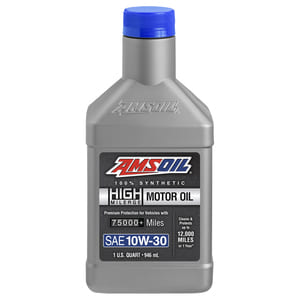
Dispersants play a critical role in engine maintenance by preventing small, harmful particles from clumping together to form larger, more abrasive aggregates that could scratch engine parts and damage bearings. By keeping these particles in suspension, dispersants ensure that the oil filter can effectively capture and remove them from the circulating oil. This not only protects the engine but also prolongs the life of the oil and the filter.
Detergents
Engine oil detergents function similarly to household detergents by keeping engine surfaces clean and preventing the buildup of harmful deposits and oxidation products. This cleanliness is essential for maintaining efficient engine performance over time. Detergents help to neutralize acids formed by the combustion process, further protecting metal surfaces from corrosion and ensuring smoother operation.

Corrosion and Rust Inhibitors
Contrary to popular belief, oil alone doesn’t naturally prevent rust and corrosion. Engine oils are formulated with specific inhibitors designed to protect metal components from oxidizing and rusting. These inhibitors form a protective barrier on metal surfaces, safeguarding engine parts from the detrimental effects of moisture and oxygen. This protection is essential for the longevity and optimal performance of the engine, especially in environments prone to high humidity or variable temperatures.
Motor oil does far more than just lubricate engine parts. It significantly reduces friction, preventing metal surfaces from grinding against each other, which minimizes wear and tear. Motor oil also keeps the engine clean by trapping dirt, sludge, and microscopic debris that can cause damage over time. Moreover, it prevents rust and corrosion by forming a protective barrier on metal components, ensuring the engine’s longevity.
For optimal performance, choosing a high-quality oil like AMSOIL is essential. AMSOIL products are specifically engineered to offer superior protection and efficiency, ensuring the engine runs smoothly under various conditions. Their extensive range of oils is designed to meet the specific needs of different engines, whether it’s a high-performance sports car or a hardworking truck.

Understanding the inner workings of an engine, along with the vital role of oil, can make a significant difference in a vehicle’s performance and longevity. It’s crucial to recognize that not all motor oils are created equal. Lower-quality oils may fail to provide adequate protection, leading to increased engine wear and potential failures. By opting for a premium product like AMSOIL, you’re investing in the health and efficiency of your engine.
Conclusion: The Vital Role of Motor Oil in Engine Maintenance
Understanding what engine oil is made of underscores its importance in maintaining vehicle health. Each time an oil change is considered, remember how essential it is for reducing friction, cooling components, and preventing corrosion. Using the appropriate oil not only extends the lifespan of the engine but also enhances overall vehicle performance. Prioritizing the right motor oil guarantees smooth and reliable journeys, ensuring that maintenance is both preventative and cost-effective.

